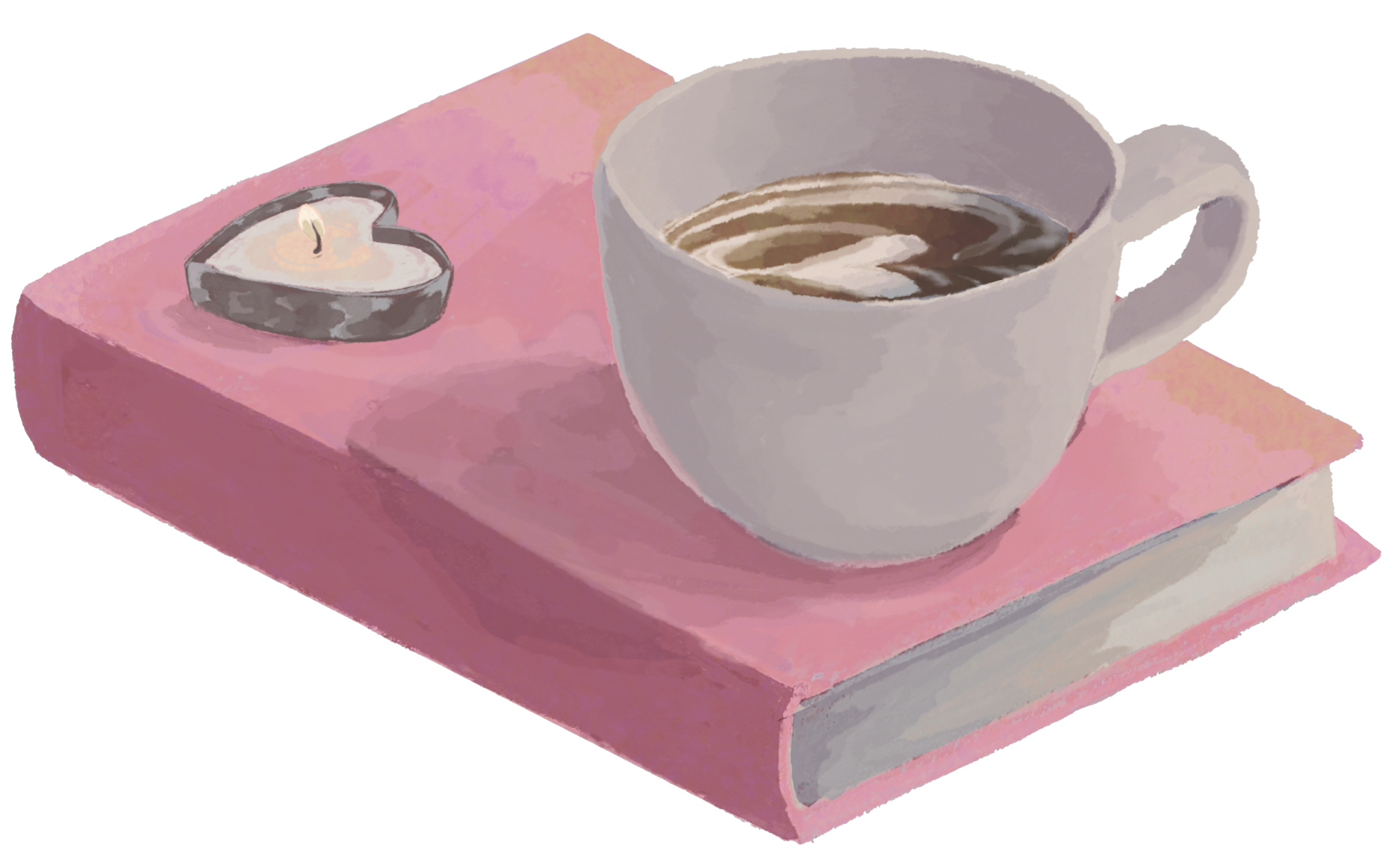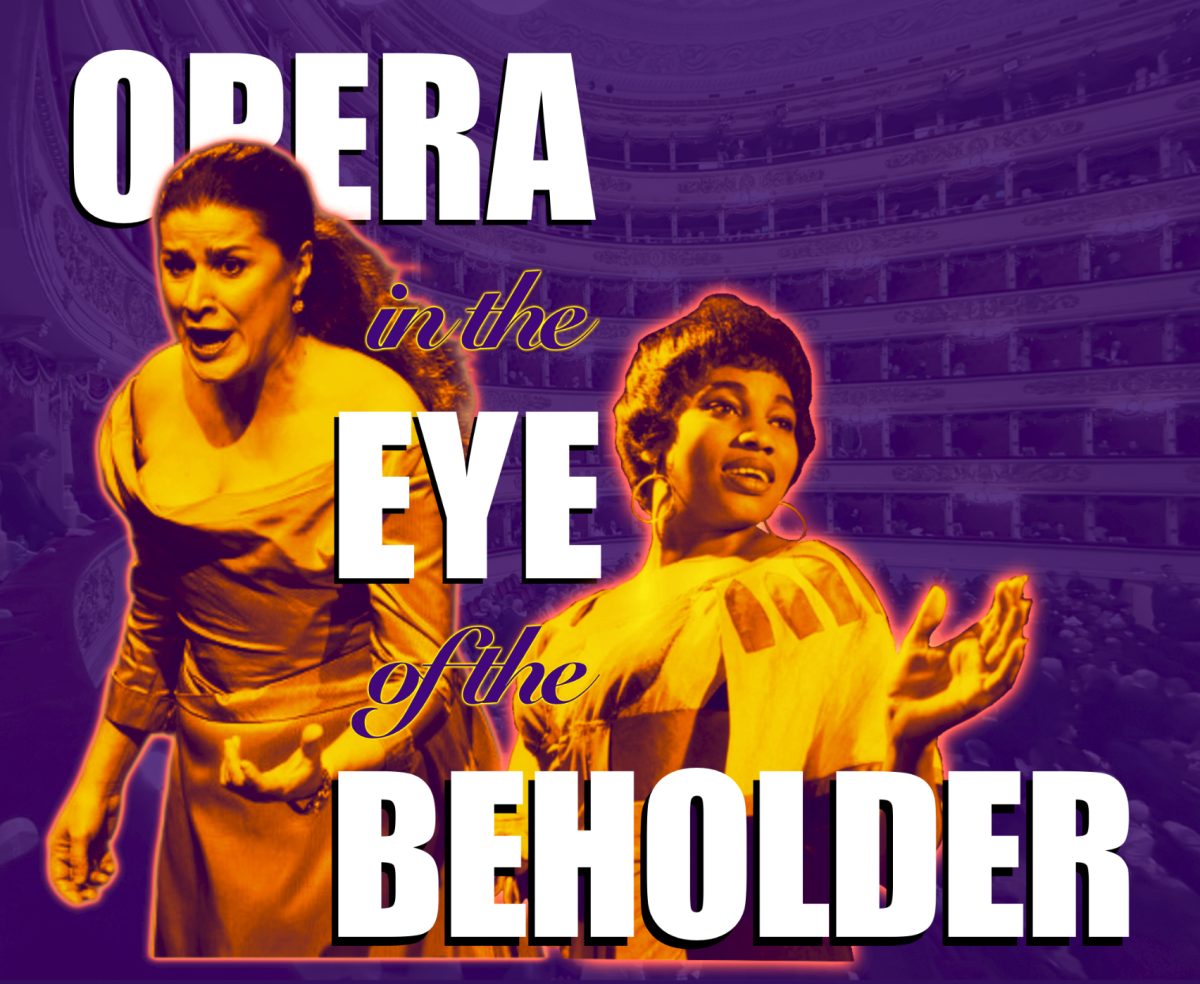Ami Kaneko pours over her handouts, diligently concentrating on preparing for the upcoming AP Chem unit. While she finds the class’s concepts to be intriguing and fun to learn, she’s often more engrossed in the jazz she’s listening to.
“It kind of feels like you’re in a movie,” Kaneko said.
We’ve all been there, daydreaming while going about our day—sipping on a warm cup of coffee or tea while taking notes, doodling hearts on page corners, sighing in disappointment as the love of our life doesn’t meet our eyes from across the room—the list goes on and on.
We all imagine our lives are better to fulfill our dreams of living completely. It’s not always easy to see the good in our changing world, so romanticizing is the key for some to find a sense of peace and stability. It’s quite common in our society to fantasize about aspects of our lives, whether it be school, work or relationships.
The definition of romanticizing has changed throughout the years.
In earlier generations, romanticizing was akin to glamorizing or to make appealing. For instance, when watching a police drama, viewers only see the climactic moment when the criminal is finally captured, not realizing the long days the detective spent in their car, waiting for the perfect moment.
However, as “romanticizing” TikToks went viral, the definition slowly changed. Nowadays, teens associate romanticizing as making one’s life interesting or enjoyable. Today, people romanticize their own lives, as opposed to glamorizing others’.
Romanticizing manifests itself in many different scenarios, especially in media. Vlogs on Instagram often display the glamorous life everyone wants while some creators make soft-colored and subdued TikToks, emphasizing the surrealist concept through the best and latest guides to idealize nature walks or school.
Recently, studying has become one of the more romanticized aspects of life, especially among Paly students. Sophomore Denise Dinh frequently sees guides on romanticizing school on social media.
“They [social media creators] make really good day in the life videos,” Dinh said. “I want to be just like them.”
According to a survey conducted by CMag, around 87.5% of 33 respondents have romanticized before. Of those who said yes, approximately 78% have romanticized at least somewhat often, suggesting the popularity of romanticizing among Paly students.
Freshman Julia Curtis acknowledges the role romanticizing plays in her school life.
“I don’t like…doing my homework,” Curtis said. “But if I light a candle… or drink tea, it can be aesthetic, and I’ll enjoy it more.”
Curtis also finds herself idealizing her life based on TV shows she’s watched, especially Gilmore Girls.
“The main character, Rory Gilmore, is a very good student who is very autumn-like,” Curtis said. “And I’ll just picture it [her personality] when I go to school.”
As a fellow Gilmore Girls fan, junior Ella Hwang shares her love for the main character’s appealing aesthetic. However, she differs in the ways she romanticizes her studying.

“Sometimes when I’m studying, I like to listen to music or have a study playlist to help me enjoy it more,” Hwang said.
Dinh remarked that romanticizing plays a related role in her life when compared to other Paly students.
“[Romanticizing] makes me excited for more things that I wouldn’t be otherwise,” Dinh said.
In addition to daydreaming at school, sophomore Joanne Lin occasionally finds herself romanticizing right before she goes to bed.
“It’s fun to imagine what might happen in these situations that aren’t real… [since] they’re unlikely to ever happen, I can only romanticize about them,” Lin said.
There are many reasons and benefits as to why people romanticize. However, AP Psychology teacher Chris Farina says there are other implicit benefits to romanticizing as well, such as increased productivity.

“If you can make that [something mundane] into a more positive emotional experience, then you’re going to enjoy it more, you’re going to do a better job at whatever you’re trying to do,” Farina said. “That, in turn, will also allow you to enjoy it even more.”
Dinh echoes comparable sentiments that romanticizing helps people enjoy life as much as possible.
“Otherwise [without romanticizing], we wouldn’t be able to get through school and life if we were just living as it was,” Dinh said.
Similarly, romanticizing elicits more positive emotions when dealing with menial tasks such as going to school and completing homework.
“It [romanticizing] can allow you to be really happy about whatever it is you’re romanticizing or glamorizing,” Farina said. “Especially if it’s something mundane, like homework.”
Romanticizing can also give people a glimpse into their future, something to look forward to if everything goes according to plan.
“I think it just makes you a little bit happier, and it gives you more hope for the future instead of seeing things as it is,” Dinh said.
Many students glamorize in order to be more productive at work. They think that changing how one looks at something changes how motivated we are to work. If we look forward to something, such as lighting a candle or playing curated music, working will be more exciting and fun, therefore increasing the quality of our results.
Although romanticizing has its fair share of benefits, it also has several downsides.

“When the primary focus of that romanticization could be outward-facing, then it can become problematic,” Farina said.
Additionally, the act of consuming outside romanticization, especially posts on social media, compels people to view the online standard as a perfect reality. Viewing others’ romanticized lives can lead to people accumulating a distorted view of reality and their expectations.
“They represent a glamorized version of that thing rather than the actual experience itself,” Farina said.
No matter what people romanticize, it’s necessary to understand the underlying reason behind romanticization: making life more enjoyable.
“When you’re consuming that [social media], it’s important to keep in mind that when you’re seeing something romanticized, it may not represent exactly what the experience is like,” Farina said. “People are trying to portray a very curated life to generate good feelings about what their life’s like.”
Since social media is the most prevalent way of viewing others’ romanticizations, many find it embarrassing to talk about the subject with their friends, afraid that they’ll be perceived as cringy or weird.

“A lot of people think it’s weird, just daydreaming,” Curtis said.
Yet, some find communities in which they can romanticize with others.
“I romanticize going to work as having fun with my coworkers and school as having fun with friends,” Dinh said.
Even though the medium through which people romanticize is different, people are united through one common interest—becoming happier.
“It makes it [peoples’ lives] seem really nice,” Farina said.
The sentiment ‘romanticize your life’ has only recently been put into words, but people have always dreamed of how their lives can be better and more enjoyable.
“Romanticizing just makes things a little more interesting, and if you’re imaginative, it can make things fun,” Dinh said.
Romanticizing has its drawbacks, but mostly, it’s a tool through which people can enjoy their lives to the fullest and delight in the little things. It can provide people with a light at the end of a tunnel or a study tool.
“We want to believe that we have these really exciting, beautiful lives,” Farina said. “If we can romanticize our life, it makes it seem glamorous.”










